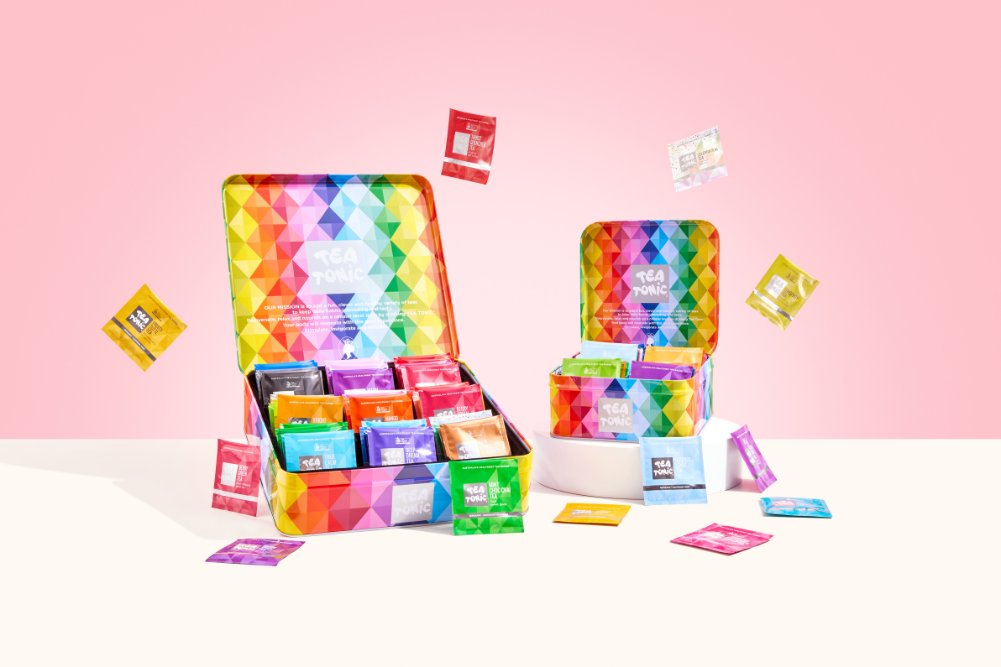How to heal your eczema naturally
Dry, cracked, itchy, weeping skin — just thinking about it makes you uncomfortable. In Australia, eczema is rapidly rising with as many as one in four children developing the disease before the age of two. So when one of your family members begins to get this debilitating and painful condition, what are some of the natural remedies and diet changes you can employ to ease their symptoms?
What is eczema?
Eczema is an uncomfortable, inflammatory skin condition where the skin is moderately to severely itchy, red and dry. Sometimes, the skin also weeps. It is a recurring, non-infectious disease and is most common in people with a family history of an atopic disorder, including asthma or hay fever. While it is not known exactly what causes it, experts do agree that it is widely misunderstood and has a greater impact on a family than is often realised.
Although eczema affects all ages, it usually appears in early childhood (babies between two and six months of age) and disappears around six years of age. In fact, at the moment in developed countries, eczema is at epidemic proportions with statistics from countries like the UK and Australia showing that one in five children suffer from it. However, a small percentage may experience severe eczema into adulthood.
In infants and toddlers, the rash usually appears on the face, elbows or knees. In older children and adults, the rash appears on the face, hands, neck, backs of knees and ankles.
However, eczema is more than just a skin condition. Its effects on the sufferer and their family can be devastating. Stephanie Holdsworth has almost 20 years experience dealing with the effects of eczema, both in her time as a nurse in children’s wards and working with infection control within hospitals, and as a mother with a child who suffers anaphylaxis and eczema. She now shares her years of experience on her website allerchic.com.au.
“What I saw while working in the hospital system made me realise that eczema is so much more than just a rash — it’s life disrupting, and not just for the child but the whole family. I saw parents who were tired, confused and feeling unsupported. It can be devastating.”
Common causes of eczema
The problem with eczema is there is no one answer to the question of what causes it. There’s a number of theories and research has indicated some triggers, but everyone is different. In fact, the World Health Organization and dermatologists around the world now recognise there is no known cure for eczema — it is more about management.
There are, however, tried and tested techniques that may bring you or your family member relief and prevent further outbreaks. It is simply a matter of working your way through the various natural remedies and dietary changes, determining triggers where possible and finding what works for you.
“I have seen families who have bought every miracle cream and potion recommended by family and friends and featured on TV,” Holdsworth says. “Not to mention spent a small fortune on every kind of healthcare professional you can think of. It’s what people do when a loved one is in pain and suffering.
“Through my own experience, both in the hospital and with my own daughter’s treatment, I have learnt there is no one product that fits all. One family may hail goat’s milk baths as a cure for their child, while another may experience a severe flare in their child’s eczema.”
It’s all about trial and error.
Gut health and probiotics
While there is no clear cause of eczema, there is a significant amount of research into the link between gut health and the skin disease. In fact, a clinical trial showed 44 per cent of children with atopic eczema experience diarrhoea, regurgitation or vomiting after ingesting food and the gastrointestinal symptoms were, in most cases, reported to have been present before the eczema first appeared. This suggests that poor gastrointestinal health is another factor that can trigger the appearance of eczema.
The health of the gut and the presence of good bacteria have also been studied in pregnant women who went on to have babies with eczema. In one such study, researchers followed the progress of 276 babies who were genetically predisposed and therefore at high risk of eczema. Their mothers were given either a probiotic or a placebo supplement during pregnancy. It was found that mothers who took the probiotic during pregnancy were less likely to have a baby with eczema than the placebo group. During the two-year study, 71 per cent of the placebo group experienced eczema at least once, while only 29 per cent from the group given the probiotic were troubled by eczema.
Julie Cottle is a naturopath, mother of four and creator of the website for mothers and babies naturaltransition.com. She agrees that, while there’s a number of factors that can contribute to someone’s eczema, gut health often plays an enormous role.
“Eczema is something that needs to be treated from the inside out. I believe eczema is a multifaceted problem, but it starts in the gut. I see a big correlation between eczema and children with diets of low nutritional value while containing high amounts of common allergens such as wheat and dairy.”
“It’s important for parents to know that having a child with eczema doesn’t necessarily mean that the child has a poor diet,” Cottle adds. “A child can have a really good diet but still be having some foods that are causing the immune response resulting in eczema.”
A probiotic can dramatically change a sufferer’s symptoms and is a great place to start trying to deal with eczema symptoms. It can even be helpful for little babies. Cottle suggests that because breastfed babies get their probiotics from their mother’s breastmilk, the mother can take the supplement to pass on to the baby.
“Formula-fed babies can be given a probiotic powder directly, but you need to be careful that they are getting a strain that is appropriate for the stage of their gut development. You can get a baby probiotic powder from your local healthfood store.”
Food allergies
Karen Fischer is a nutritionist and an award-winning author who specialises in skin disorders. Her most recent book, The Eczema Diet, was born after her daughter, now 12, began developing eczema at just two weeks of age. Since then, she has devoted herself to studying the very latest information on food and skin diseases and has developed a unique “Eczema Diet”.
Fischer has spent the past 10 years piecing together the findings of hundreds of international researchers and skin specialists to try to solve the eczema puzzle. “The result is the first diet designed to correct the underlying causes of eczema,” she says. “And the unique thing about this diet is that suffers can gradually revert back to a normal diet and remain eczema-free.”
The Eczema Diet incorporates both the avoidance of offending substances and the addition of eczema-safe foods and nutrients to boost the health of the liver, blood and gastrointestinal tract, and therefore restore skin health. It does this by:
- Improving gastrointestinal health
- Balancing EFAs (fat ratios)
- Reducing blood histamine levels
- Reducing chemical load and anti-nutrients
- Restoring acid-alkaline balance
- Promoting liver detoxification of chemicals
While it’s important to follow Fischer’s extensive questionnaire to work out what are your particular triggers and concerns, she does suggest five simple rules everyone can follow on a daily basis to manage eczema flare-ups.
- Eat five serves of eczema-safe vegies daily (includes beetroot, carrot, celery, green beans, iceberg and cos lettuce, spring onion, peas, Brussels sprouts and leek)
- Eat five serves of eczema-safe fruit daily (banana, papaya, pawpaw, pear)
- Eat at least two serves of eczema-safe grains daily (includes potatoes, sweet potato, brown rice, buckwheat, oats, quinoa and spelt)
- Eat two serves of eczema-safe protein daily (includes beans, chicken, fish, chickpeas, canned tuna and salmon)
- Drink five to eight glasses of filtered water daily
Dust mites and household allergens
Some people’s eczema can be caused by, or at least exacerbated by, dust mites in the home. If you are trying to identify what is causing your family’s condition, try reducing and managing the dust mites in your home and note what affect it has. Stephanie Holdsworth has some fantastic tips on managing this problem.
“First of all, don’t waste your money and buy into the hype around chemicals and sprays. While these may kill the actual dust mites, it is their saliva and droppings that we are allergic to. Instead, good ventilation and sunlight are the keys, as well as removing the allergen.
“The best thing to do with dust mites is weekly hot, or at very least warm, washes of your sheets, blankets, towels and children’s blankets. Monthly hot or warm washing any children’s soft toys, pillows, blankets, doonas and curtains, and daily vacuuming of carpets, rugs, cloth lounges and surfaces.
“It’s also great if you can put your pillows out in the sun once a week — to kill the mites — and have your carpets, curtains and rugs steam-cleaned every six months.”
Practical tips for babies
Eczema in babies can be particularly heartbreaking, but there are some practical tips you can follow for the littlest members of your family, too.
“Avoid bathing too often. Every second day is enough,” advises Julie Cottle. “Be very careful as to what products you use. Choose cleansing bars, shampoo and conditioner from a range of products that use natural ingredients and are specifically formulated for eczema.
“Be careful about which nappies and baby wipes you use. Babies may be very sensitive to the additives in these products. There are alternatives available for all these babycare items,” Cottle suggests. “And use gentle non-biological laundry product (no enzymes) or a laundry product made specifically for people with sensitive skin.”
The herbs turmeric, basil, ginger, thyme and fennel can be added to babies’ food. These are very helpful for eczema sufferers due to their anti-inflammatory and immune-response properties. Ensure that your child’s diet contains fish once they are ready to start eating it. Babies under six months who are fully breastfed have no need for additional fatty acids.
Finally, Cottle suggests chamomile tea as a good, gentle anti-inflammatory and a very good gut healer, perfect for eczema suffers. Babies over six months can have the chamomile tea up to three times a day.
Finding your way to relief
While it can be devastating for all involved with eczema, one thing is certain: there are plenty of ways to try to address the underlying cause and to manage its symptoms. All three of the women I spoke to about eczema were clear on one thing: don’t be disheartened. It is heartbreaking, but it can be managed — the natural way.
“Try to keep a flare-up diary,” Holdsworth suggests. “It’s so hard as parents to recall what we did two or three days ago when you’re at the doctor with a child who has been awake, irritable and scratching for the past few days. By keeping a diary you can pinpoint foods or a location (such as the park or a friend’s place) that may have triggered the flare-up.”
“In saying this,” Holdsworth quickly adds, “don’t drive yourself crazy with this as often we will never know what sets off a flare-up.”
Karen Fischer agrees. “I know right now, while you have eczema, it can be painful and incredibly itchy. And it can be heartbreaking to see your child or a close friend suffering. Sometimes your toughest challenges can call you to find new and more effective solutions and to take action and find what really works for you.”
Amy Taylor-Kabbaz is author of e-book 21 Days to Master Reconnection with Yourself (While Still Being a Great Mum!). You can find her book and other writing at happymama.com.au and follow her on Twitter: @amytaylorkabbaz.







